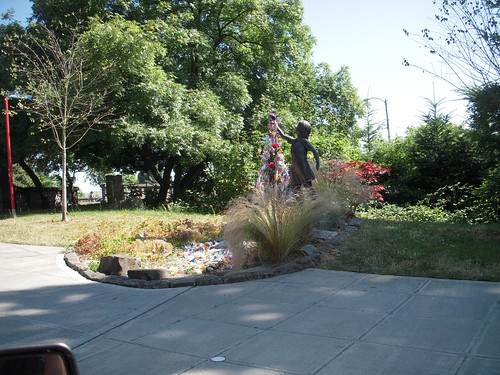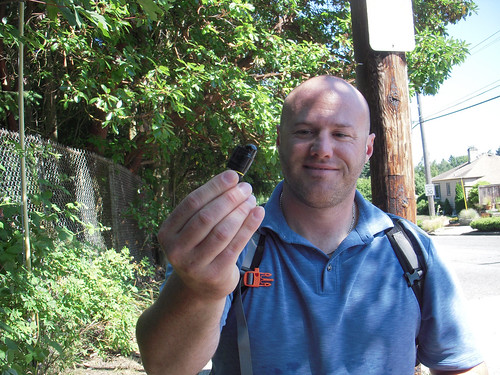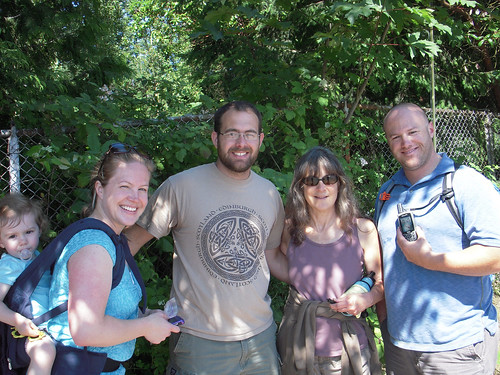By the time you'll be reading this, I'll be on a plane to Paris on the first leg of my World Domination Tour. And I have a small favor to ask of you.
Before I get to that favor, I want to say thank you to all the folks I had the pleasure to see a last time either in person or, as the weeks got crazier, over the phone, as I ended my time holed up in my house, weeping alternately over having surrendered my dogs for the coming 11 months and all these copyediting suggestions I've had to address. One of the great joys of writing, I like to tell students, is spending anywhere between 3-7 years obsessed with a project only to discover that neither you nor anyone with a taste bud in her head will have the stomach to get through said book later in copyedited form. It makes me wonder why I write at all, considering the emotional result of all this work is ending up in the exact same place where I started. I mean, why not just skip all the stupid writing stuff and get straight to the self-hatred?
By far, the brightest spot this past few weeks has been seeing my friends, in particular Rachel and Kelly, my two college roommates in Seattle. We met at The Copper Gate, a small restaurant in Ballard notable for its bar welded to resemble a giant Viking ship and, purportedly, a huge copper vulva you have to walk through to get to the bathroom. Supposedly the place was recently renovated, which might explain the disheartening absence of the vulva (Hope you like this phrase: it's my new book title) but the walls retained the same vintage pornographic posters that graced its previous incarnation, this time updated by an architect who must have seen a Jeff Wall exhibit, since half the photos had now been turned into creepy little light boxes. Even though Rachel, Kelly and I have spent the bulk of our lives living in Seattle, none of us had ever gone to the Copper Gate, preferring instead the far less self-conscious Rebar or Frontier Room, that cramped and unsanitary little bastion of cyrrhosis which has since been renovated to resemble a Sundance Catalogue outlet store. Damn the tech revolution with its overstuffed couches and self-important microbrews! Fie, Microsoft! Fie, Amazon! A pox on both your houses!
Anyway, what made this meeting particularly fun was seeing two friends in a place that--renovated or not--had capably preserved some of Seattle's pre-tech boom quirks, while learning that my friends themselves had also preserved and even improved upon their most endearing idiosyncrasies. While listening to the gentle strains of The Suffering Fuckheads (The evening's running joke. Me: "Suffering Fuckheads, Batman! The Joker has just rigged your titanium crotch-missile to explode upon impact!" Rachel, in voice of Sylvester the Cat: "Thuffering Fuckheadth, that canary'th a tathty little morthal!" Kelly: "Behind every Suffering Fuckhead is an absent vulva.") we talked about the difficulties of parenting a blind child (Kelly), the re-consideration of a grad program in psychology (Rachel), the exhaustion of ambition (me), the disappointments suffered by Gen X women in their family and career choices and whether that weird recent news article that said 43% of us hadn't had children could possibly be true (all of us), home mortgage rates, future escape plans, and whether or not our waitress actively hated us. Like all old ex-roommates, we waxed nostalgic about all those great times we spent together NOT fighting over whose turn it was to change the toilet paper. Like the time Steve and Kwite Larj made that vat of Death Punch for the wake party we threw during which everyone took a turn being the corpse while Rachel gave the eulogy and Steve played Sin Eater with a seemingly endless supply of green bananas. And the time that we went line-dancing at the gay country-western bar, and I invited the three guys I was dating to the SAME graduation party and ALL OF THEM as my date, and Kelly joined that cult, and how Rachel finally got up the nerve to date the guy she's still--15 years later--seeing, and I finally taught myself to drive a stick shift by ferrying Kelly back and forth to the hospital to cure her of what turned out to be acute gas pain. (Sorry, Kelly.) Talking to these women was like moving backwards and forwards in time simultaneously, and discovering that the same intensity and humor that characterized the conversations we had 20 years ago still characterized our conversation now. Most of the time when you meet old friends, A Horrifying Awkwardness descends, during which you might discover, say, that your previously pro-choice pal who worked at Planned Parenthood has now joined a small Evangelical sect committed to eradicating the condom aisle in the Safeway just outside Stillaguamish. Of the few things in life that truly unnerve me (spiders, vegan chocolate cake, men in airports with automatic weaponry), what discombobulates me most is seeing people I was intimate with for long periods of my life, people that I really loved, utterly, totally, philosophically changed from their previous selves. It doesn't happen often--hey, everyone changes, just look at my ass--but the radical erasure or overwriting of personality I'm talking about is something else again.
What I'm talking about is my friend Janet. Janet has changed, utterly and completely, but this change was not by choice. Janet is sick with Lyme's disease which was diagnosed too late and has now destroyed her neurological system. I met Janet twenty years ago, during the year both of us were studying at Trinity College in Ireland. Janet was one of those people who travels alone to places like Borneo and never hesitates to live in Japan for half a decade. She was smart enough to get scholarships to Harvard, and independent enough to imagine working for the US State Department in countries around the Middle East. She was an intensely private person as well, so although I knew she had boyfriends, she would never share the gory details, preferring to talk about books and travel to anything sexual. (One of the most suprising evenings in my life was a night spent in New Orleans 15 years ago with Janet, during which she not only agreed to go to a strip club, but actually suggested that we go on a tour of ALL the strip clubs in the Quarter, which are legion and, if not entirely X-rated, are certainly visually unhealthy enough to frequent. We finally gave up when a Richard Simmons-look-alike stripped down to his tube socks and a pink banana hammock and began bouncing his crotch up and down half a foot in front of our faces. Considering Janet is also a strict vegetarian, this was probably a truly nauseating experience.)
That's who Janet was. I say "was" because Janet has now turned into someone who is, well, not herself. The intellectual curiosity that once defined her has been--naturally and necessarily, according to the demands of her experience-- replaced by self-absorption and anxiety. The reticence to talk about private matters is gone, because if she doesn't tell people about what is happening to her body, she will receive no adequate medical treatment. The financial independence she achieved from her years working in Japan has vanished, replaced by a stream of medical bills that Medicaid can't entirely--or even primarily--cover. She has bankrupted not only herself but her partner and now, she fears, her parents. She can't work, because she suffers from seizures, and--ironically--while isolation defines her existence, privacy doesn't, as her seizures also mean she can't ever be left unattended.
Talking to Janet is like talking to someone else who happens to have Janet's face and who can occasionally even channel moments of Janet. I don't know if this is true of anyone whose life has been utterly revised by disease, or if this specific to Lyme's and the particular neurological havoc it wreaks in the infected body. What I do know is that it is shocking to see Janet now, and it is shocking to tell people about Janet and hear the disdain for or suspicion of her condition in some of their voices. Surely, these people insist, what happened to Janet is somehow her fault. Why doesn't she get better help? Why doesn't she go on welfare or, better yet, get a job?
Part of me understands this disdain is fear: fear that what has happened to Janet can happen to anyone, including the listener. Maybe it's a hangover from that long Protestant Work Ethic orgy we had, when we kept telling ourselves that nothing good or bad happens to us that is ever outside our control. If a terrible disease ravages you, it's because you weren't rigorous or vigorous enough to look after yourself. You're a blight, an embarrassment, a cultural stain. You're no better than the disease yourself, scrounging and gnawing your way through a welfare state made possible by other, healthier members of society.
What happened to Janet scares me, too, not because she did this to herself, but because it is the extreme conclusion to a series of problems within our system. It also scares me because Janet's background is, in certain ways, like that of many other young, bright and capable people I've known. Part of Janet's story is like a lot of my generation's story, and it goes something like this:
You are a smart, independent child raised in a small town that's primarily religious. You like it, but you don't particularly want to end up like the other kids in high school, married after two years, with a house half a mile away from your mother's and a kid on the way. So you get a scholarship to a good college in a bigger city, where you soon distinguish yourself in your moral philosophy and religious studies and Indian literature classes, "You know, the arty farty subjects," as your sister sneers each Christmas to your mother, both of them baffled and a little intimidated by your esoteric new interests. You get a scholarship to study abroad for a year where you meet and date a German student, start to travel around Europe, realize that what you love more than anything is boarding a train headed to a place you've never heard of before you bought the ticket.
You graduate, with honors, but are too capable in enough humanities-based subjects that a specific graduate school program right now makes little sense. So you travel. You go to South America and Southeast Asia, parts of Scandinavia, Africa. You work sporadically, as a waitress, a GRE tutor, a secretary, just to scrape enough money up to buy the next plane ticket. Your German boyfriend annoys you once too often by not visiting, so you break up with him over the phone.This is ok, since in a month you'll be leaving for Japan. You've heard there are companies there that hire Americans to be teachers, and you've always wanted to participate in a tea ceremony.
In Japan, you fall in love. Your boyfriend comes over each night with boxes of little sponge cakes and the small eggplants you love, worried that--because you are vegetarian--you are probably starving. You have a kleenex box-sized apartment in a seaside town that's faster and better organized than any other city you've ever lived in before, and your circle of friends there quickly grows. Your Japanese is good: very good, in fact, certainly better than any other American your friends know, and your natural reticence (a trait you must have inherited from your mother, a shy woman quick to doubt herself, as your sister always complains) makes you a good fit in the country. You get a cat. You keep seeing your boyfriend. You are happy.
When your teaching contract runs out, you decide to go to graduate school. You apply to the best program in the country that specializes in your interests, and are overwhelmed when you are accepted with a fellowship. You move to a large city in the American northeast dominated by horrible weather and the richest people you've ever known. Your reticence, once an asset in Japan, turns to shyness before your more privileged colleagues in the classroom, turns to an almost crippling silence when the cold you come down with one winter worsens, turns to a flu, makes it difficult some days to leave your bed.
You are ill. You do not know what is causing it, but you can't get enough sleep, have a hard time with some of your fine motor skills. That cold never seems to have left your system, and though you are a capable thinker, engaged and even talkative when most curious, you aren't one of the most cutthroat competitors in class, and sometimes it seems that your professors are looking at you as if you are literally fading away. Which perhaps you are. You are terrified by your shaking hands and legs. And yet who would you tell? You stop calling people or writing to friends; it's too exhausting to keep up with the school work as it is, and every morning is so cold and gray. If only you could get more sleep and didn't have to exist on coffee--surely the reason for these sudden jitters--everything would return to normal.
When you graduate--a miracle, you think, born of severe determination and perhaps the isolation enforced both by your schoolmates' indifference and your interminable illness--you get a job with the US State Department. They are impressed, they say, by your travel and your facility with languages. They'd like to train you to work for them, they want to send you to the Middle East. They think you would excel there. Your hands shake on the phone when you talk to them, and this time you think it is because you are ecstatic.
And then, four months after you take this job, you can't get out of bed at all.
From there, I think you know or can guess the rest of this story. The extreme poverty, the chest stent, the racks of highly expensive, highly toxic medications. The family half torn apart by stress. The week in County, wildly misdiagnosed as psychotic, put on suicide watch. The incredible isolation. Perhaps you still don't have a lot of sympathy for Janet. Perhaps your life was one that took you in a very different direction. Who among you blog readers out there spent your twenties in gainful employment at companies with great medical plans? Very few, I suspect. Instead, I bet most of you were like Janet, and took your time studying in a variety of different schools, who dabbled and dawdled and indulged your creative interests. Who traveled at times aimlessly, lived abroad, who camped and hiked alone in foreign climes only to emerge at last into successful "adult" life somewhere around age 29. Just in time to get the professional job and the clean house, the good medical and dental plans, the regular salary.
Janet got sick at age 29, the year most of us start to come into our own. The creativity and independence that defined her pre-ill life--the very qualities that got her scholarships to Tulane and Harvard and allowed her to travel around the world--are now the very things which certain people might suggest made her vulnerable. But what made her vulnerable was the system she walked into. The years she spent in Japan and at Harvard means that she contributed almost nothing to Social Security. Private health care was too expensive to purchase throughout her twenties, and besides, she was young; what was the likelihood she would need a more extensive plan? A cold wasn't a good enough reason to go to a specialist her school insurance wouldn't cover. And the doctors at the school clinics were so sure they got their diagnoses right; who was she to argue when her symptoms worsened? She did everything that so many of us do, and the only difference between us is that, somewhere along the way, she'd got bitten by a tick.
A tick.
So I have a favor to ask of you. I know there are eight people reading this blog. And maybe you don't want to or can't or are unsure about sending a little of your money Janet's way (times are crazy right now, and really--you've never met her, why should you?), but maybe you also know someone who might be able to help her out. Someone, maybe, who works at Berkshire-Hathaway. (Aside: how did Warren Buffet get to be the hero of this current capitalist-industrialist fantasy? The man infamous for buying up ailing businesses for parts, who snaps up the best dividend-paying companies only to change the dividend structure so that low-level investors like you and me get effectively screwed out of the real value of the stock, thus our own retirement plans? You know what I'm talking about, Warren. I mean it. I want my dividends back. I WANT MY DIVIDENDS, WARREN.)
What I'm asking is, if you can, please pass on this blog entry about Janet or, more importantly, this address to which any contributions might be sent.
Save Janet Mims Fund
c/o Doris Begnaud (Janet's mother)
10731 Glenfield Ct
Houston, TX 77096
It's a series of small things that did Janet in, and maybe it's a series of small things that can help her out now. Maybe not change her life back to what it was, because, really, can it ever be that again?, but at least change it to something a little better than what it is now.
And that's all I'm asking.
Thanks,
P












